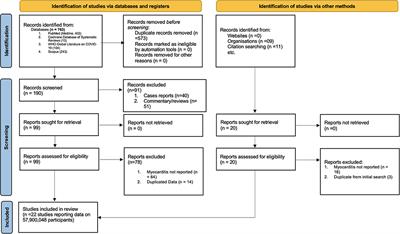Amity Island
Well-Known Member
- Relationship to Diabetes
- Type 1
Graph attached shows in 2020 comparing those who had and didn't have covid, shows no significant difference in rates of myocarditis and pericarditis.

 pubmed.ncbi.nlm.nih.gov
pubmed.ncbi.nlm.nih.gov

The Incidence of Myocarditis and Pericarditis in Post COVID-19 Unvaccinated Patients-A Large Population-Based Study - PubMed
Myocarditis and pericarditis are potential post-acute cardiac sequelae of COVID-19 infection, arising from adaptive immune responses. We aimed to study the incidence of post-acute COVID-19 myocarditis and pericarditis. Retrospective cohort study of 196,992 adults after COVID-19 infection in...


